9F, Zhongrui Jumei Building, 68 Jiuzhang Road, Suzhou Industrial Park, Jiangsu Province
Company News
Registration for the American Cancer and Hematological Diseases Seminar Opens

Overview of Project Background
With the development of new therapeutic drugs and testing methods, the accumulation of clinical trial data, and the continuous revision of expert guidelines, the care of patients with solid tumors, hematological malignancies, and benign hematological diseases will continue to develop. These oncologists, hematologists, and other clinicians involved in the care of patients with diseases are facing many challenges from the latest diagnostic, therapeutic, and management developments. With the development of China's market economy and the continuous reform and advancement of the medical service system, participants in the medical and health field are facing unprecedented challenges and pressures. Every hospital should strive to seize the opportunity of innovation, use modern medical information technology and management methods, improve its core competitiveness, and form its unique advantages. For medical personnel in the medical and health industry, the medical and health reform has brought opportunities for the breadth and depth of their career development, as well as requirements for their practical and professional abilities in the field of work. They need to learn and learn from the advanced management concepts, methods, and experiences of medical and health developed countries and regions

This course comprehensively reviews the foundations of clinical, molecular, and pathophysiology for the diagnosis and treatment of tumor and benign hematological diseases, focusing on the broad field of medical management in a multidisciplinary environment, with emphasis on the latest advances in molecular genetics, clinical pharmacology, epidemiology, and supportive care. The course will also use an audience feedback system, interactive panels, and case discussions to better engage participants in the lecture
II. Project Overview
Project Theme: American Cancer and Hematology Seminar
Invited by: Massachusetts General Hospital, Dana Faber Cancer Institute, Bregan and Women's Hospital
Participants: Dean, Vice President, Director of the oncology department, backbone of oncology experts, etc.
Number of trainees: 10-15
Study duration: 7 days
Objective: To increase learners' knowledge and critically evaluate the latest methods of cancer patient care
Learning forms: special lectures, teacher student discussions, group exchanges, etc.
Lecturers: Professor experts from Massachusetts General Hospital, Dana Faber Cancer Institute, Bregan and Women's Hospital, etc.
Study Location: Fairmont Copley Plaza Hotel, 138 St. James Avenue, Boston MA 02116
Learning objectives:
1. Incorporate the emerging clinical data into the best cases recommended by experts for diagnosis, evaluation and treatment of breast cancer patients
2. Develop personalized treatment strategies for patients with lung cancer and head and neck cancer based on appropriate molecular testing and newly approved systematic treatment when appropriate
3. Based on existing molecular detection and risk assessment methods, select available systemic preparations as part of a multimodal treatment approach for gastrointestinal and neuroendocrine cancer patients
4. Formulate treatment plans for prostate cancer, testicular cancer, kidney cancer and bladder cancer according to the risk factors and characteristics of each patient
Create an evidence-based care plan for patients with ovarian, cervical, endometrial, and trophoblastic cancer that will incorporate the latest advances in diagnosis and management
"Based on emerging clinical evidence and existing expert recommendations, update a range of less common cancer treatment options, including brain tumors, thyroid cancer, melanoma, sarcoma, and mesothelioma;"
Develop evidence-based management plans for patients with benign blood diseases, incorporating new diagnostic strategies and new therapies into the current treatment model
8. Establish optimized nursing support and lifestyle plans for cancer patients based on recent guidelines and existing expert recommendations

Reference Courses
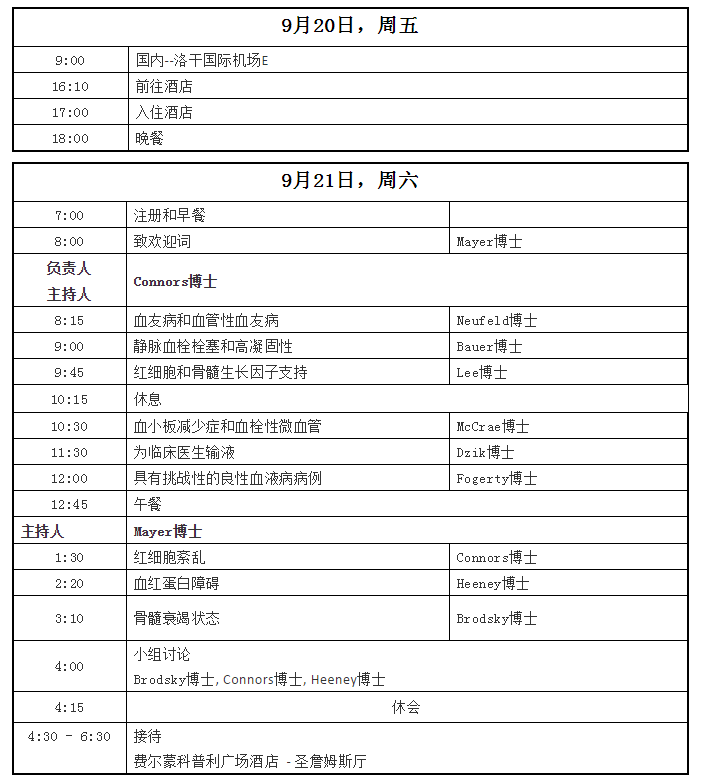

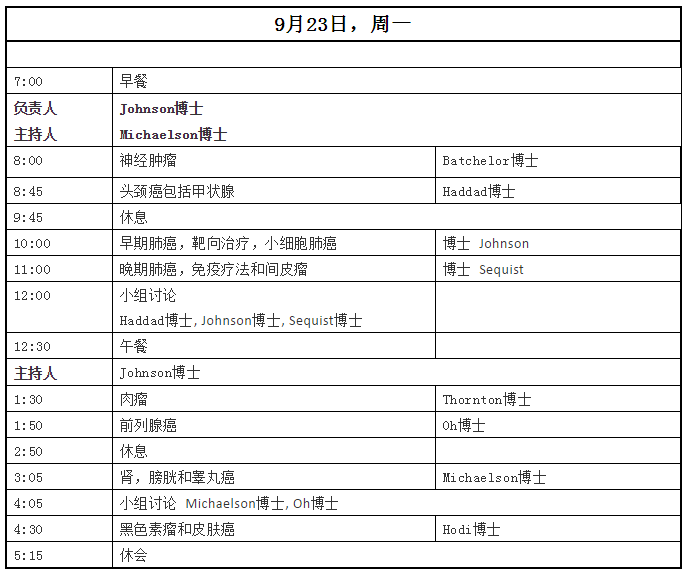
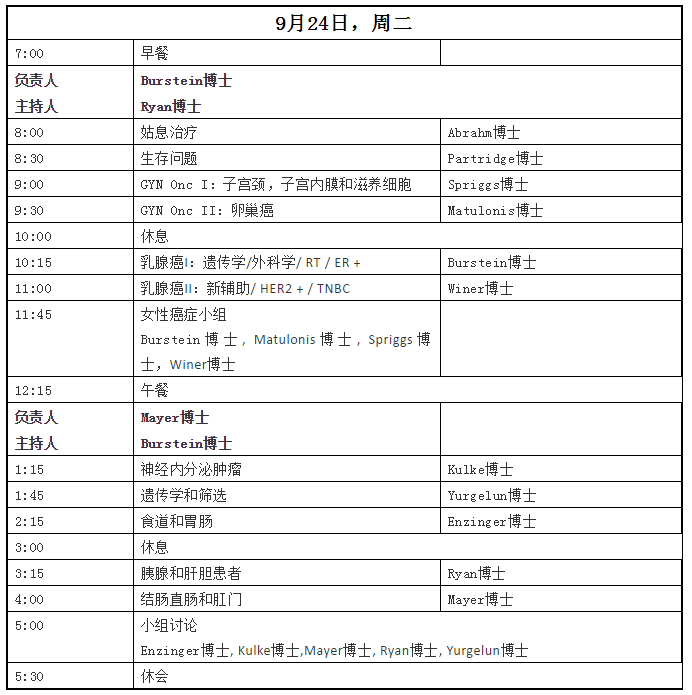

IV. Project Cost
Learning costs include:
Course registration fee, interactive communication with experts
Invitation of lecturers
Provide training venues and training experts
Provide paper and electronic learning materials in PDF format
Learning Stationery
Provide an invitation letter
The cost of living includes:
All meals while in the United States
Accommodation in the United States (star hotel standard, all standard rooms, one for two people)
Vehicles required for activities during the study period (professional driver buses are provided for seminar learning activities and long-distance trips, and subway payment cards are provided for activities such as dining, etc.)
Welcome Dinner, Additional Expenses for Dinner
The United States increases labor costs for its staff
The cost does not include:
Round trip international air ticket
Visa fee
Overseas insurance premiums
V. Introduction to Training Units
In 1994, the two largest affiliated hospitals of Harvard Medical School in the United States, Massachusetts General Hospital, and Brigham and Women's Hospital, jointly established the United States Alliance Healthcare System, with more than ten members
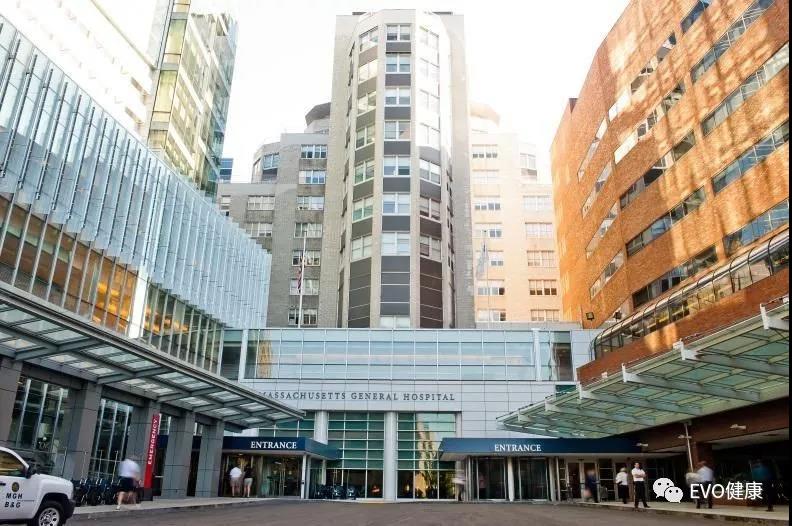
Massachusetts General Hospital, founded in 1811, is a teaching hospital at Harvard Medical School, and a major medical education center and biomedical research base at Harvard University. The hospital has over 950 beds and 21000 medical and nursing personnel. Every year, there are 48000 inpatients, 1.5 million outpatients, over 100000 emergency cases, and 42000 surgical operations. Every year, 3600 infants are born here
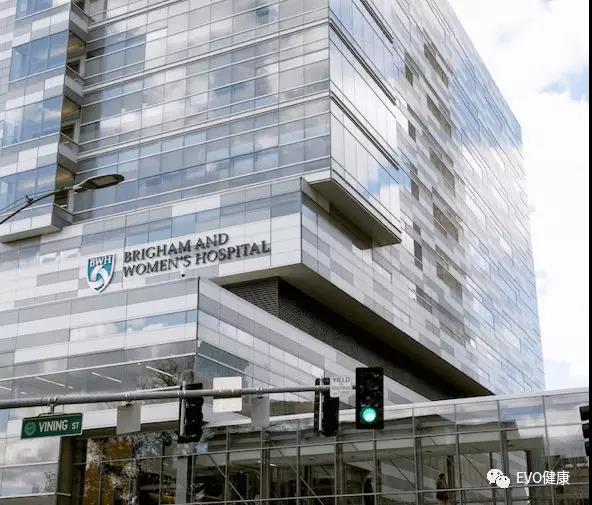
Brigham and Women's Hospital is the second largest hospital affiliated to Harvard Medical School. Brigham and Women's Hospital has become one of the most famous comprehensive hospitals in the United States with its advanced diagnosis and treatment technology and strong scientific research strength. It receives an annual research funding of 537 million US dollars from the National Institutes of Health, making it the largest institution in the United States to receive this funding
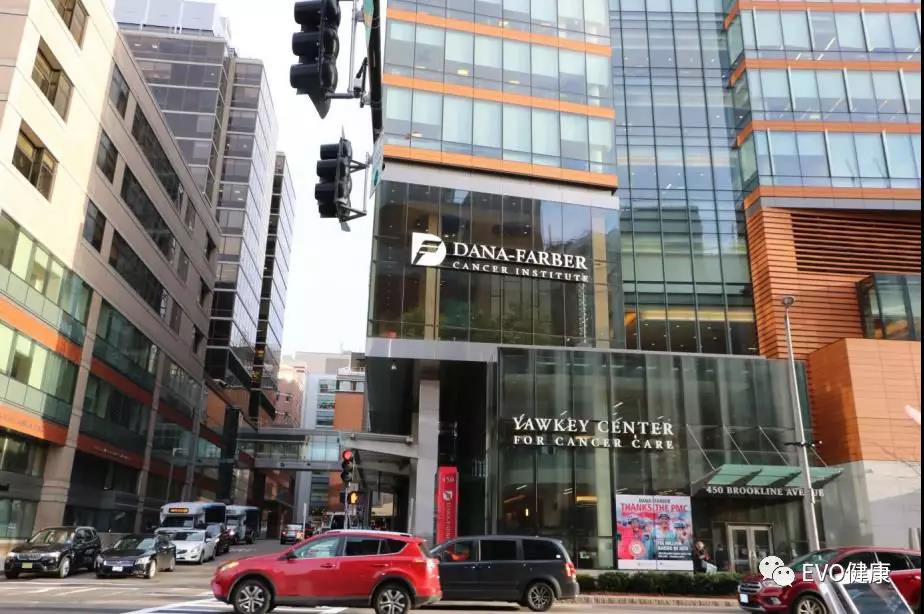
Dana Faber Cancer Institute was established in 1947 as an affiliated cancer research institute of Harvard Medical School and a comprehensive cancer treatment center designated by the United States federal government. The research institute is renowned for cancer gene targeting therapy, cancer immunotherapy, cancer endocrine therapy, cancer biological therapy, and cancer vaccine research and development
VI. Contact Information
Wu Fan:
180 3682 0272 fwu@evomt.com
Jiang Jun:
137 7175 8095 jjiang@evomt.com
Zhao Jingru:
152 6189 5393 jrzhao@evomt.com
Kao Zhengxiong:
159 9540 2151 zxgao@evomt.com
Lou Lihui:
152 2136 7732 lhlou@evomt.com

